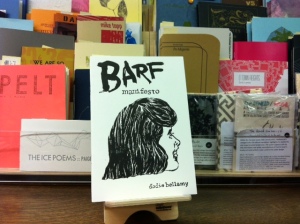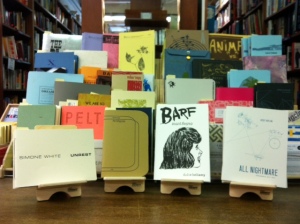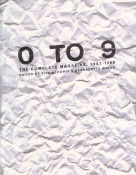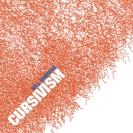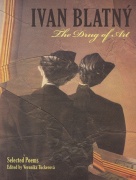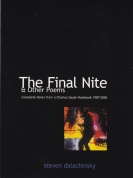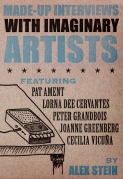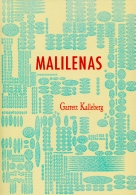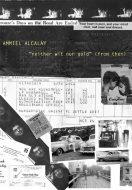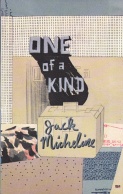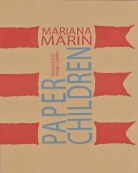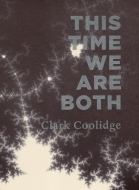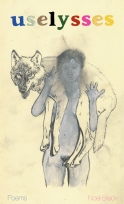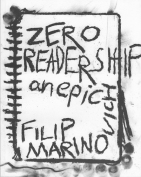Posts tagged ‘UDP’
“Small Numbers, Big Feeling”: an interview with Ugly Duckling Presse
1) First of all, tell us a little bit about your name. What’s the connection with the fairy tale, and what’s the story behind that extra “e”?
A: A very fitting start, as our name is a source of constant explanation. The name arose when the original founders were in college, and it has a bit of the feeling of a band name that is chosen on a whim, and ends up dogging the group for years. If you wanted to look at it more seriously, the reference to the fairy tale could be seen as a statement of position in relation to the poetic canon and the publishing industry at large. It is our goal to never become that beautiful swan. A couple other things about the name: in recent years, some members of the collective have taken to favoring the nom de plume UDP over Ugly Duckling Presse; the abbreviation brings a pleasingly material and abstract flavor. Also, we make it a point to never call ourselves Ugly Duckling, it is always Ugly Duckling Presse. We are rather insistent on that fact.
As for the famed ‘e’ on the end of our name…the closest specific reference is Kafka- or K-Presse, a small German publishing house that a number of the founders were taken with. The ‘e’ denotes the fact that our range of activities/interests extends beyond just publishing and just poetry; it tells you that we care about criticism, performance, essays, and fiction; it tells you that we are interested in the event as a source of poetic activity beyond the page.
2) Ugly Duckling has been around in one form or another since 1993. Based on the history of the press available on your website, it seems like a remarkable success story–a xeroxed college zine spawns one of the most well-known independent presses in Brooklyn–and it all took place during a time when publishing as an industry was experiencing a much-publicized downturn. How do you account for the success of the project over the past two decades?
A: It’s rather inexplicable isn’t it? But it goes to show the power of dedication, and it speaks to the virtues of a loose-knit collective as an organizational principle. Seriously, our capacity for inefficiency becomes a virtue of longevity, as well as ulcers for our office managers. It all comes back to one premise: the love of the book and of collaboration. UDP grew out of that premise, and we continue to refine and repurpose our rules and guidelines to suit it. Everything must go back to the premise.
Also, the very smallness of poetry has allowed us to carry on. At this small size, it doesn’t take much to grow. Or, perhaps—speaking of fairy tales—you can think of UDP, and of poetry in general, as the tortoise. It is never going to move fast, is never going to sell those huge numbers, but it endures, it keeps pushing forward, borne on by the passion of its participants. That’s the thing: small numbers, big feelings.
3) It’s no surprise after reading about some of the publishing experiments that UDP has undertaken that the press began as a zine devoted to absurdist literature. Here are some phrases I pulled off your website: “an accordion book in a custom-made felt pajama top”; “from subversive postcard art to teabag-size magazines to zines printed on tree bark”; “‘LAPA’ by Daniil Kharms–UDP’s first paperless book–is performed during a snowstorm”; “a readable ice-cream sandwich.” To what extent is this type of innovation part of UDP’s raison d’etre, and has it become easier or more difficult to pull off these kinds of experiments as the organization has expanded?
A: This type of innovation is the zest in UDP’s drink. It is the rug that ties the room together. UDP believes firmly that the boundaries of the book can and must be tested by prodding them with this absurdity. That being said, our efforts have shifted over the years to a concentration on the type of material we publish, as opposed to big, crazy gestures like our Anti-Readings (ooh, we miss those so much). Now, this tendency is more likely to emerge in the decision to publish a piece that would have no chance at another publishing house. Or in our decision to take on big projects that stretch our capacities, such as the Emergency Index periodical, which is unwieldy, but wonderful, and, we think, a vital project. Or the Digital Proofs Program on our website.
UDP has always had a love affair with the event, and so this attitude to innovation manifests in our approach to readings and fundraisers. As regards the latter, our Ready Made Flea was almost more concerned with affording a unique, enjoyable experience for the community than it was with raking in the big dollars. But it ended up being so much fun! When it comes down to it, UDP will always choose absurdity.
4) Poetry in translation is a big part of UDP’s catalogue. Can you say a little bit about how the press goes about commissioning those translations, choosing which poets to publish, and how closely you work with the original poets?
A: Translation is one of the crucial planks in our platform, along with bringing out emerging voices and uncovering important lost works. A number of our editors are translators, so they bring personal experience and a deeper scholarly perspective to the decision making process. Our Eastern European Poets Series is a great example (it now has 34 titles). It was spearheaded by Matvei Yankelevich, who is the series editor. He works through his own interests, and his own knowledge of that milieu, to decide what will come out under that series, and if possible he works directly with the author, as in the case of Tomaz Salamun’s Poker, and On The Tracks of Wild Game. In a situation where the author is deceased, he works directly with the translators to determine the size and scope of the project. This is how Vsevolod Nekrasov’s I Live I See came into being. (Bela Shayevich and Ainsley Morse are two of the most wonderful writers/translators/performers in the world!)
UDP editors have a very wide latitude in determining the types of projects they engage, so every case is different. However, there is a consistent ratio of projects begun because an author/translator approached us with a proposal, and projects begun because an editor pursued an idea.
5) It seems like interns and volunteers are an integral part of Ugly Duckling Presse. How do you seek out interns, and what level of involvement do they have in your organization?
Interns. Are. Essential. We love our interns, and we couldn’t do this without them. Applications mainly come from university students in the US and abroad. Interns conduct many of the day-to-day operations of the presse, from social media to shipping; in these they have a large degree of freedom and responsibility. UDP is keenly aware of the potentially exploitative nature of internships—many collective members were former interns themselves—so we take care to make sure that the internship is a positive and meaningful experience. Funnily enough, this often comes in the form of giving interns more responsibilities: drafting press releases, reading submissions, typesetting, proofing. This is the work that the type of person who wants to intern at UDP is interested in doing, and so our goal is to make sure that there is real learning happening. And it goes both ways, being open to interns having a voice means that we hear new perspectives. Trying to cut down on the hierarchy (all editorial work at UDP is unpaid), and focusing on creating an atmosphere where everyone is working together to achieve the common goal of making the books happen.
6) Say a little bit about the economics of UDP. How do you keep the business viable? You have 501(c)(3) tax-exempt (nonprofit) status. What exactly does that mean, for anyone who might not know, and how important has it been for the press?
A: If you abandon the idea of big profits, your organization can live for years. Anyone interested in pursuing a small-press poetry venture would do well to mull that advice. It’s about subsistence, focusing on recouping expenses, and being dogged in tracking them down.
It’s not possible to talk about the economics of UDP without saying that we can only afford to do it because the labor is volunteer-based; the editorial work and day-to-day tasks are spread among the group, which make it a part-time labor of love rather than a job. In some ways, this is problematic and we’re not quite sure how sustainable it is. But there’s no way to explain our functioning without making this clear.
Nonprofit status relieves us of the burden of having to pay taxes on the merchandise that we sell. It is also an important organizational status that grants us validity in the eyes of the state. It allows UDP to exist in a word. There’s a stack of paperwork in our files as thick as the bible that is necessary to document and confirm this status.
UDP draws revenue from four main different sources: Our direct sales (sales through our website), sales to bookstores (through distributors like SPD and to partner bookstores like Book Culture (Thanks Book Culture!)), subscriptions (around 80-100 per year + 5-10 libraries), and grants. (Our largest supporters are the NEA, NYSCA and the DCA. They have supported us consistently for years and we owe them a huge debt of gratitude.) Grants make up between 35-50 percent of our operating budget in any given year, and those grants are only available because of our nonprofit status. So without it, we wouldn’t be here talking.
Nonprofit status also helps us innumerably throughout the year, by cutting down on things like office and events expenses; it is also an important ideological marker, which conveys a double message: 1) that we are basically wards of the state, meaning that we are not a business, and that our concerns are allowed to be other than profit-pursuit, and 2) that we are hard-nosed realists, who understand the mechanics by which an impractical venture such as ours can circumnavigate the vagaries of the market, i.e. we do what we have to do to get by.
UDP is a volunteer editorial collective, and as such has no one unified voice or set of opinions, even about itself. The answers to these questions came from editor Michael Newton, and they are his opinions about the Presse.
